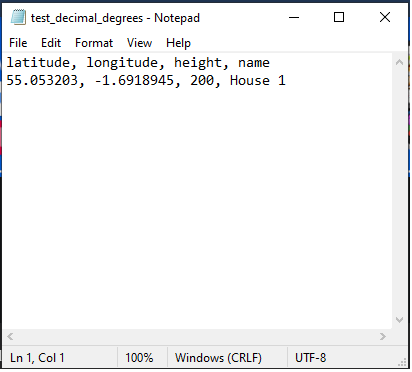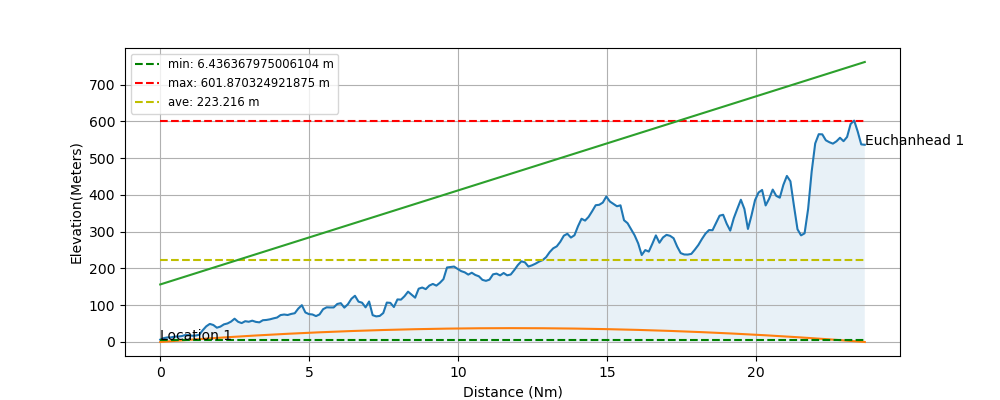This application allows the user to batch process multiple line of sight queries and output them in graphical form, using data from the Google Elevation API. A .kml file is also produced for viewing in Google Earth.
I wrote this application after being frustrated at the lack of simple, free tools for processing large batches of line of sight calculations. I watched a co-worker spend an entire shift re-entering the same data again and again over 100 hundred times and save the output as a screenshot which then had to be cropped in MS paint.
Originally it was used to compare airport radars to proposed wind turbine developments however I have modified the original to be used for any generic location or object you desire. I hope this helps someone out.
git clone https://github.com/MHenderson1988/line-of-sight-analysis.git
Run main/view/gui.py and follow the on-screen instructions.
To run the application, in it's current form, you will require -
- A valid 'Google Elevation API' key
- 2x Valid .csv files
Currently the application can convert between the following -
- Decimal latitude/longitude
- Eastings and Northings (OSBG36)
.csv files must use valid headers of -
- latitude/easting
- longitude/northing
- height
- name
The above example uses decimal latitude/longitude.
Row 1 - Latitude (Float) Row 2 - Longitude (Float) Row 3 - Height, in metres (int/float) Row 4 - Unique name (String)
Graphical output will look like this -
The green line shows the path taken between the top point of the first and second locations. Below is the imposed elevation data which has been manipulated to the simulated curvature of the earth (shown by the orange arc).
The plotted line which illustrates the line of sight will be coloured green if line of sight exists. If a disruption to the view is detected then the line will be coloured red.
Currently the application has the following limitations -
- Earth curvature is calculated, assuming that the Earth is a perfect sphere
- Only Google Elevation API is currently supported
- Only natural terrain is accounted for. This application does not take foliage or man-made objects/buildings into account

